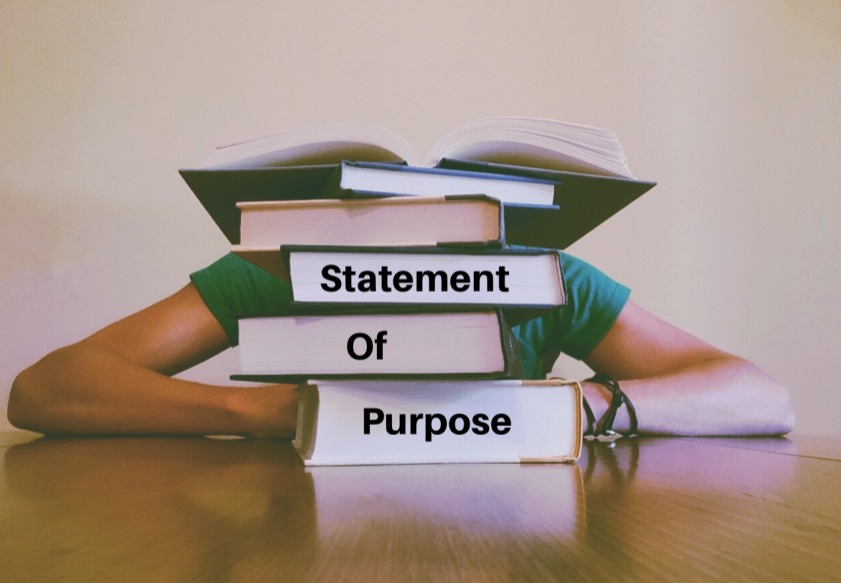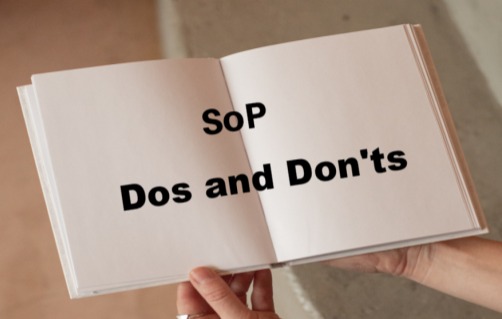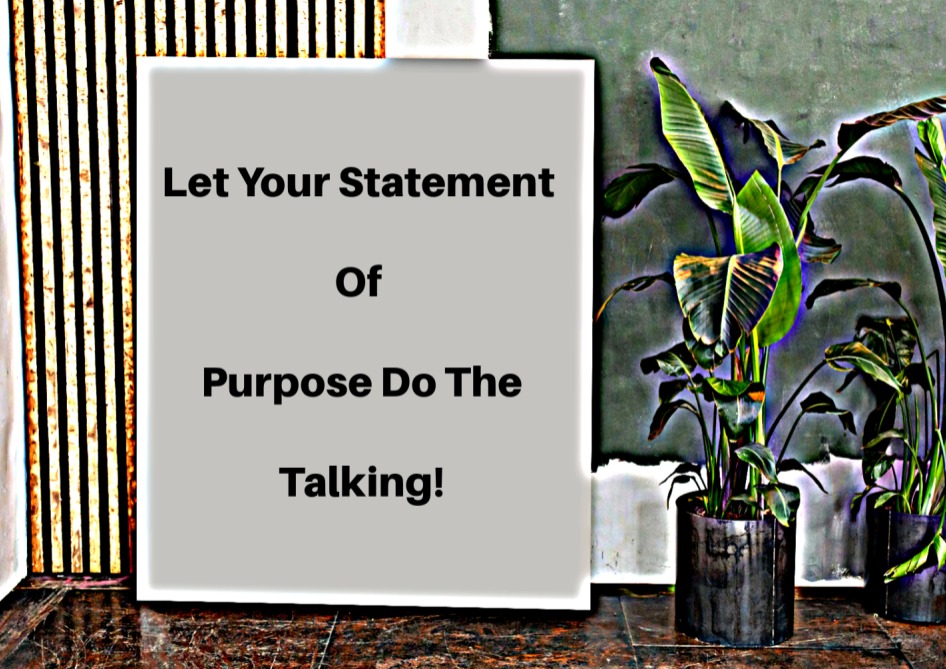Your statement of purpose is your one chance to capture the admissions panel’s attention. And show them that you are the perfect candidate for their program. It is important to ensure that your statement is well-written, error-free, and engaging. In this blog post, we will discuss how to write an SoP that will wow the admissions panel! We will give you tips on what to include in your statement and some common mistakes people make when writing SoP. So read on and learn how to write a statement of purpose that makes you stand out from the crowd!

What’s a statement of purpose- SoP?
A statement of purpose is an essay that explains why you are applying to a particular program and why you think you would be a great candidate for it. It should include information about your background, academic record, career goals, and why you feel this particular program will help you reach these goals.
Why is a statement of purpose required?
SoP is required by most competitive programs because it helps the admissions committee get to know the applicant better. It gives them a chance to learn about the applicant’s interests, goals, and experiences in a way that transcripts and other documents cannot. Writing an SoP can show your commitment to the program and make you stand out from the other applicants.
How do I make a statement of purpose attractive?

First, you should make sure that your SoP is well-written, error-free, and organized. Use clear and concise language. Avoid jargon and technical terms wherever possible, and break up long sentences into shorter ones. Highlight relevant experiences and skills that make you the perfect candidate for the program. Showcase any awards, research, or volunteer work you have done that might help your application stand out.
What mistakes should I avoid when writing a statement of purpose?
Avoid clichés and generic statements. You want your SoP to be unique and show who you are as a person. Proofread your statement and double-check for any typos or grammatical errors. Finally, make sure to keep the length of your statement in mind—it should be long enough to showcase all of your skills and experiences, but short enough to maintain the reader’s attention.
Writing a statement of purpose doesn’t have to be intimidating! Use these tips to create an SoP that will catch the attention of the admissions panel. Showcase your experiences, highlight your successes, and make sure to avoid common mistakes when writing it. With a little hard work and dedication, you are sure to set yourself apart from other applicants and get into the program of your dreams.
In Short!
- Use interesting, active language
- Focus on specific experiences and achievements
- Be honest and authentic
- Showcase your passion for the program
- Don’t be afraid to use anecdotes
- Use bullet points sparingly
- Proofread your statement multiple times
- Ask someone else to review it before submitting it.
What should a good statement of purpose include?
A good statement of purpose should include:
- A snappy, attention-grabbing introduction
- Relevant experiences and achievements
- Specific examples to illustrate why you are a great fit for the program
- A conclusion that ties everything together neatly.
How do you write a research statement of purpose?
A research statement of purpose is slightly different from a regular SoP in that it should focus more on your research interests, experience, and goals. Start by introducing yourself and your background in the field. Then, discuss any relevant projects or research you have done so far, as well as any awards or accomplishments related to those projects. Finally, explain why you are interested in this particular program and how it will help you achieve your research goals.
How long should a statement of purpose be?
Generally, a statement of purpose should be approximately 500-800 words long. However, some programs may specify a different word count or format. Make sure to check the requirements before submitting your SoP.
Where should a statement of purpose start?
Start your statement of purpose with an introduction that captures the reader’s attention. Use interesting language and a personal anecdote to give the admissions panel a glimpse into your personality and background. Then, move on to discuss relevant experiences and skills, as well as why you are a great fit for the program. Finally, wrap it up with a conclusion that ties everything together.
How do I make my statement of purpose unique?
To make your SoP stand out, focus on making it personal and authentic to you. Draw upon experiences that are unique to you and illustrate why you are the perfect candidate for the program. Don’t be afraid to use personal stories to grab the reader’s attention. With a little creativity and effort, you can create a SoP that will make you memorable to the admissions panel.
What should I keep in mind when writing my statement of purpose?
When writing your SoP, endeavour to be veracious and authentic. Additionally, focus on showcasing your experiences and skills, as well as why you are a great fit for the program. Above all else, proofread your statement multiple times to ensure it is free of errors or typos. With these tips in mind, you can create an SoP that will guarantee your study abroad ambition.
List of mistakes people make when writing a statement of purpose
- Common mistakes people make when writing their SoP include:
- Disregarding the word count or format requirements
- Not doing thorough research about the program and the faculty or lecturer’s works
- Failing to proofread their statement multiple times for errors and typos
- Focusing too much on generalities instead of specific experiences and achievements
- Not showcasing their passion for the program or their enthusiasm
- Forgetting to ask someone else to review it before submitting it.
What are the basic mistakes people make when writing a statement of purpose?
One of the most common mistakes people make when writing a statement of purpose is failing to tailor it to the particular program they are applying to. It is important to demonstrate why you are an ideal fit for the program and how it can help you reach your future goals. Many applicants fail to tell a story with their statement of purpose, which can make it harder for the reader to connect with them on a personal level. Proofread multiple times and avoid typos or other errors that can make your statement seem sloppy and unprofessional.
Note
It is also important to avoid going into too much detail about your background and experiences, as it can become hard for the reader to follow and detract from the overall message of your statement. Keep the information concise and focus on how it will help you in the program you are applying for. Additionally, make sure to use proper grammar and spelling when writing, as this can be a major red flag for admissions panels. With these tips in mind, you can create an SoP that is professional and engaging!
Can I start my SOP with a quote?
Yes, you can start your SoP with a quote. Just make sure it is relevant to the subject of your statement and captures the reader’s attention. Likewise, try to keep it brief so that you have room to dive deeper into your experiences and understand why you are a good fit for the program. With these tips in mind, you can start your SoP with a bang!
What should you avoid in a statement of purpose- dos and don’ts?

Do:
- Do the needed research
- Be honest and authentic
- Focus on relevant experiences and skills
- Illustrate why you are the perfect candidate for the program
- Proofread your statement multiple times for errors and typos.
Don’t:
- Exceed the word count or format requirements
- Use overly formal or flowery language
- Lie or exaggerate your accomplishments
- Focus too much on generalities instead of specifics.
- Wait till the last minute before writing your SoP
Download a guide for the statement of purpose
What is an example of a statement of purpose?
A great example of a statement of purpose could be:
“My research interests include exploring the impact of artificial intelligence on human behaviour, as well as how these advancements can help solve global challenges such as climate change. I believe this program would give me the opportunity to study these topics in depth and lead me towards achieving my long-term academic goals. My prior experience in data science and my dedication to the field of AI make me an ideal candidate for this program.”
The University of Berkeley outlines some key points in writing a statement of purpose
Is a statement of purpose the same as a personal statement?
No, a statement of purpose and a personal statement are not the same. But the difference is just a thin line. A statement of purpose focuses on why you are a qualified candidate for the program and how it will help you reach your future goals. On the other hand, a personal statement typically focuses more on your experiences, values, and motivations that have shaped who you are as an individual. Both are important when applying to a program, but the main difference is in their purpose and focus. With these tips in mind, you can create two effective statements that will help you stand out as an applicant!
Is it okay to use humility and humour in a statement of purpose?
Yes, it is okay to use humility and humour in a statement of purpose. Humility is an admirable quality to display, as it shows that you are aware of your limitations, yet still strive for success. Similarly, using lighthearted humour can help capture the reader’s attention and make them more likely to remember you when reviewing applicants. Just make sure to keep it tasteful and appropriate, as admissions panels may not appreciate certain types of humour. There you go, you can create a statement of purpose that shows the admissions panel your unique personality!
Example of a statement of intent
A great example of a statement of intent could be: “My research interests include exploring the impact of artificial intelligence on human behaviour, as well as how these advancements can help solve global challenges such as climate change. I believe this program would give me the opportunity to study these topics in depth and lead me towards achieving my long-term academic goals. My prior experience in data science and my dedication to the field of AI make me an ideal candidate for this program.”
Is it hard to write a statement of purpose?
Writing a statement of purpose can be a daunting task for many applicants. It is important to take your time and think carefully about what you want to include in order to make your SoP stand out from other applicants. However, with proper research and careful consideration of what’s important for the particular program, you are applying to, writing an effective statement of purpose is achievable. Be sure to tailor the document to the specific requirements of the school or program and showcase why you are an ideal fit for it. Avoid any mistakes that could make your SoP seem sloppy and unprofessional.
Should I write my name on the statement of purpose?
Yes, it is important to include your name at the top of the statement of purpose. This can help admissions panels keep track of your application and ensure that all documents are properly associated with you. Additionally, including your name on the SoP will make it easier for the reader to connect with you on a personal level. Be sure to also include other contact information such as email address or phone number so that admission officers can easily reach out to you in case they have any questions about your SoP.
Are there any requirements for the statement of purpose?
Yes, most colleges and universities have certain requirements for statements of purpose. Be sure to research the specific requirements for each school or program you are applying to in order to ensure that you meet all criteria.
Conclusion
In conclusion, writing an effective statement of purpose requires thorough research. And careful consideration of what’s important for the particular program you’re applying for. Be sure to tailor your SoP to the specific requirements of the school or program. Include relevant details about yourself, such as your experiences, values, and motivations, that have shaped who you are as an individual. Showcase why you are an ideal fit for the program and how it can help you reach your future goals. Lastly, avoid mistakes such as typos or failing to tell a story with your SoP that can make it seem sloppy and unprofessional. With these tips in mind, you can create an incredible statement of purpose that will knock the admissions panel’s socks off!












